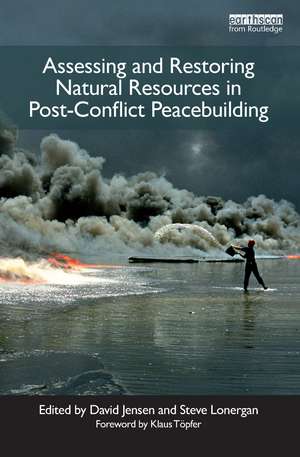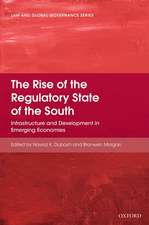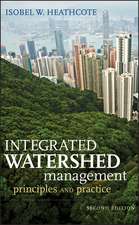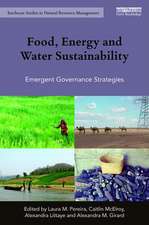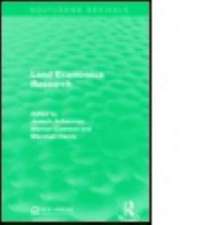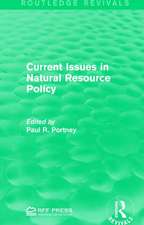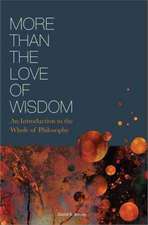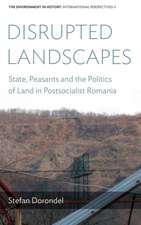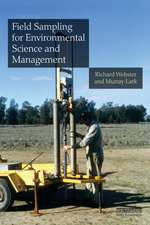Assessing and Restoring Natural Resources In Post-Conflict Peacebuilding: Post-Conflict Peacebuilding and Natural Resource Management
Editat de David Jensen, Stephen Lonerganen Limba Engleză Hardback – 22 dec 2015
This book, by thirty-five authors, examines the experiences of more than twenty countries and territories in assessing post-conflict environmental damage and natural resource degradation and their implications for human health, livelihoods, and security. The book also illustrates how an understanding of both the risks and opportunities associated with natural resources can help decision makers manage natural resources in ways that create jobs, sustain livelihoods, and contribute to economic recovery and reconciliation, without creating new grievances or significant environmental degradation. Finally, the book offers lessons from the remediation of environmental hot spots, restoration of damaged ecosystems, and reconstruction of the environmental services and infrastructure necessary for a sustainable peace.
Assessing and Restoring Natural Resources in Post-Conflict Peacebuilding is part of a global initiative to identify and analyze lessons in post-conflict peacebuilding and natural resource management. The project has generated six books of case studies and analyses, with contributions by practitioners, policy makers, and researchers. Other books address highvalue resources, land, water, livelihoods, and governance.
| Toate formatele și edițiile | Preț | Express |
|---|---|---|
| Paperback (1) | 624.14 lei 6-8 săpt. | |
| Taylor & Francis – 29 oct 2012 | 624.14 lei 6-8 săpt. | |
| Hardback (1) | 1015.26 lei 6-8 săpt. | |
| Taylor & Francis – 22 dec 2015 | 1015.26 lei 6-8 săpt. |
Preț: 1015.26 lei
Preț vechi: 1238.12 lei
-18% Nou
Puncte Express: 1523
Preț estimativ în valută:
194.29€ • 210.97$ • 163.21£
194.29€ • 210.97$ • 163.21£
Carte tipărită la comandă
Livrare economică 22 aprilie-06 mai
Preluare comenzi: 021 569.72.76
Specificații
ISBN-13: 9781138134683
ISBN-10: 1138134686
Pagini: 536
Ilustrații: 84
Dimensiuni: 152 x 229 x 30 mm
Greutate: 0.88 kg
Ediția:1
Editura: Taylor & Francis
Colecția Routledge
Seria Post-Conflict Peacebuilding and Natural Resource Management
Locul publicării:Oxford, United Kingdom
ISBN-10: 1138134686
Pagini: 536
Ilustrații: 84
Dimensiuni: 152 x 229 x 30 mm
Greutate: 0.88 kg
Ediția:1
Editura: Taylor & Francis
Colecția Routledge
Seria Post-Conflict Peacebuilding and Natural Resource Management
Locul publicării:Oxford, United Kingdom
Public țintă
Postgraduate and ProfessionalCuprins
Foreword Placing Environment and Natural Resource Risks, Impacts, and Opportunities on the Post-Conflict Peacebuilding Agenda Part 1: Post-Conflict Environmental Assessments Introduction 1. Evaluating the Impact of UNEP’s Post-Conflict Environmental Assessments 2. Environment and Peacebuilding in War-torn Societies: Lessons from the UN Environment Programme’s Experience with Post-Conflict Assessment 3. Medical and Environmental Intelligence in Peace and Crisis-Management Operations 4. Thinking Back-end: Improving Post-Conflict Analysis through Consulting, Adapting to Change, and Scenario Building Part 2: Remediation of Environmental Hot Spots Introduction 5. Salting the Earth: Environmental Health Challenges in Post-Conflict Reconstruction 6. Remediation of Polluted Sites in the Balkans, Iraq, and Sierra Leone 7. The Risks of Depleted Uranium Contamination in Post-Conflict Countries: Findings and Lessons learned from UNEP Field Assessments 8. Linking Demining to Post-Conflict Peacebuilding: A Case Study of Cambodia Part 3: Restoration of Natural Resources and Ecosystems Introduction 9. Restoration of Damaged Land in Societies Recovering from Conflict: The Case of Lebanon 10. Ecological Restoration and Peacebuilding: The Case of the Iraqi Marshes 11. Haiti: Lessons Learned and Way Forward in Natural Resource Management Projects 12. Peacebuilding and Adaptation to Climate Change Part 4: Environmental Dimensions of Infrastructure and Reconstruction Introduction 13. Addressing Infrastructure Needs in Post-Conflict Reconstruction: An Introduction to Alternative Planning Approaches 14. Mitigating the Environmental Impacts of Post-Conflict Assistance: Assessing USAID's Approach 15. Challenges and Opportunities for Mainstreaming Environmental Assessment Tools in Post-Conflict Settings 16. Environmental Assessment as a Tool for Peacebuilding and Development: Initial Lessons from Capacity Building in Sierra Leone 17. Natural Resources, Post-Conflict Reconstruction, and Regional Integration: Lessons from the Marshall Plan and other Regional Reconstruction Efforts 18. Making Best use of Domestic Energy Sources: The Priority Production System for Coal Mining and Steel Production in Post–World War II Japan 19. Road Infrastructure Reconstruction as a Peacebuilding Priority in Afghanistan: Negative Implications for Land Rights 20. Evaluating Post-Conflict Assistance Part 5: Lessons Learned 21. Natural Resources and Post-Conflict Restoration, Remediation, and Reconstruction: Lessons and Way Forward
Notă biografică
David Jensen manages the Environmental Cooperation for Peacebuilding Programme of the UN Environment Programme (UNEP).
Steve Lonergan is a Professor Emeritus of Geography at the University of Victoria and former director of the UNEP Division of Early Warning and Assessment.
Steve Lonergan is a Professor Emeritus of Geography at the University of Victoria and former director of the UNEP Division of Early Warning and Assessment.
Descriere
Violent conflict invariably disrupts people's livelihoods, the natural environment, social and political institutions, and the economy at all levels. Restoring peace and rebuilding society can be arduous, but immediate action at the cessation of conflict is essential. This book examines how conflicts degrade natural resources and addresses the consequences for human health, livelihoods, and security. This book provides a concise theoretical and practical framework for policymakers, researchers, practitioners, and students.
